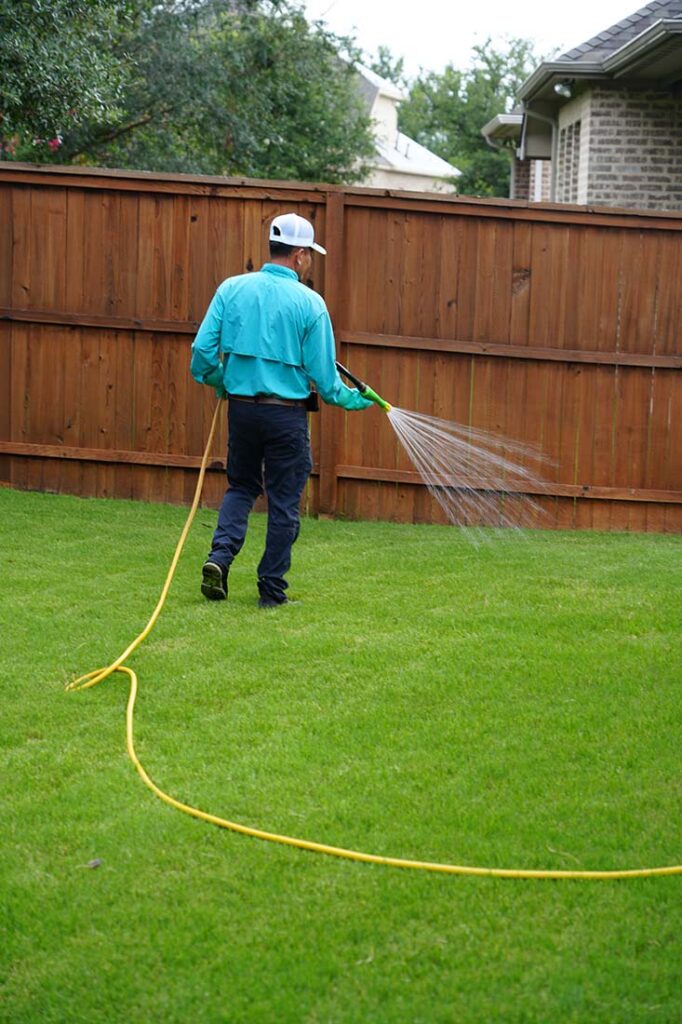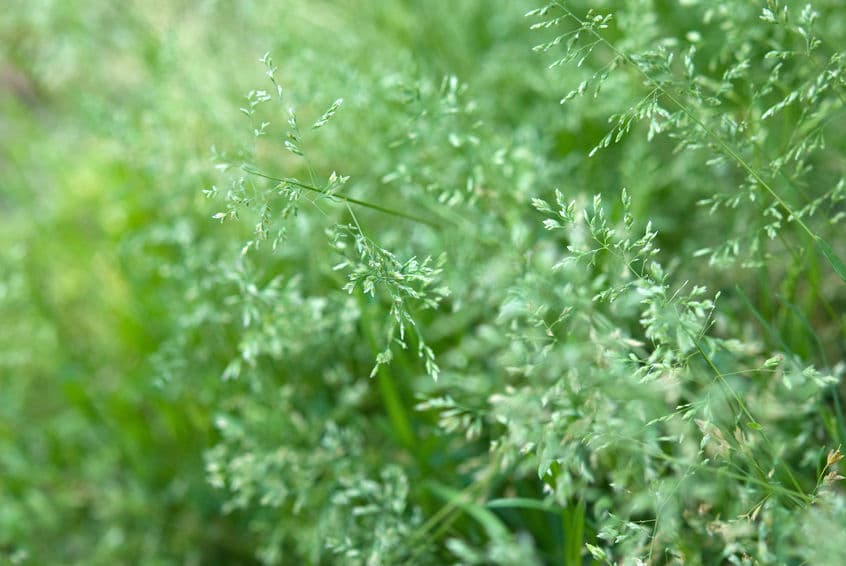If you’ve ever spotted small patches of bright green grass that look great in spring but suddenly turn yellow and die off by summer, you’ve likely met Poa annua, or annual bluegrass. This sneaky weed is one of the most common—and frustrating—invaders for homeowners across North Texas. It spreads quickly, competes with your turf for nutrients, and leaves behind ugly bare spots when it dies out. So, what actually kills Poa annua and keeps it from coming back? Let’s dig in.
Understanding Poa Annua
Poa annua is a cool-season annual weed, which means it germinates in the fall, grows through winter, and then dies when temperatures rise in late spring or early summer. It loves compacted soil and shady, moist areas—basically, anywhere your regular lawn might be struggling to grow. The best way to deal with it is to stop it before it starts.
Pre-Emergent Herbicides: Your Best Defense
The most effective way to kill Poa annua is actually to prevent it from germinating in the first place. Applying a pre-emergent herbicide in early fall (around late August to early September in North Texas) will create a protective barrier in the soil that stops Poa annua seeds from sprouting.
Make sure to water in your pre-emergent after application so it reaches the soil where the weed seeds lie. If you miss the fall window, you can apply a spring pre-emergent, but it may not be as effective since the seeds may have already germinated.
Post-Emergent Options
If Poa annua is already growing in your yard, you can use a post-emergent herbicide labeled for annual bluegrass. Look for selective herbicides that target Poa annua without harming your specific grass type. Always read and follow the label instructions carefully—especially if you have warm-season turf like Bermuda or St. Augustine, which can be sensitive to certain products.
For tougher or mixed infestations, you might need to treat more than once through the season to fully eradicate the weed.
Lawn Care Habits That Keep Poa Annua Away
Healthy lawns naturally resist weeds like Poa annua. Here are a few lawn care habits that make a big difference:
- Mow regularly and at the right height for your grass type.
- Fertilize appropriately—not too early or too heavy in fall.
- Water deeply but infrequently to encourage strong root growth.
- Aerate compacted soil to improve drainage and reduce weed-friendly conditions.
If you’re also battling other tough weeds like Dallisgrass, check out this helpful article on how to get rid of dallisgrass for more tips and herbicide recommendations.
Chart: What Kills Poa Annua (Annual Bluegrass)?
| Treatment Method | How It Works | Best Time to Apply | Effectiveness | Notes |
|---|---|---|---|---|
| Pre-Emergent Herbicide | Prevents Poa annua seeds from germinating. | Early fall (before soil temps drop below 70°F). | ⭐⭐⭐⭐ | Most effective long-term control; follow label directions carefully. |
| Post-Emergent Herbicide | Kills existing Poa annua plants. | Winter or early spring, when Poa annua is actively growing. | ⭐⭐⭐ | Works best when weeds are young; check that it’s safe for your grass type. |
| Manual Removal | Pulling weeds by hand or digging out roots. | Anytime weeds are visible. | ⭐⭐ | Labor-intensive and may not prevent regrowth. |
| Natural Methods (Vinegar + Dawn) | Dries out plant leaves on contact. | Warm, dry days. | ⭐ | Only burns the top of the plant; roots remain alive. |
| Lawn Health Maintenance | Strengthens turf to outcompete weeds. | Year-round. | ⭐⭐⭐⭐ | Mow, fertilize, and water properly to prevent Poa annua from returning. |
Ready for a Weed-Free Lawn?
Dealing with Poa annua (and all its weedy friends) can be time-consuming and frustrating. The experts at Ryno Lawn Care know the right timing, products, and maintenance practices to keep your yard looking its best year-round. Learn more about our full-service lawn care programs and let our team help you enjoy a lush, healthy, and weed-free lawn.
FAQ about Poa Annua
Does vinegar and Dawn dish soap really kill weeds?
Vinegar and Dawn dish soap can kill small, young weeds by drying them out, but they don’t kill the roots—so the weeds often grow back. It’s a temporary, surface-level fix rather than a long-term solution.
Will Poa annua go away?
Poa annua dies naturally in late spring or early summer when temperatures rise, but it will come back year after year unless you use a pre-emergent herbicide to stop new seeds from germinating.
How to get rid of annual grass?
To get rid of annual grasses like Poa annua, apply a pre-emergent herbicide in early fall and maintain a thick, healthy lawn to block future weed growth. Regular mowing, fertilizing, and aeration also help prevent them from returning.
Will Spectracide kill Poa annua?
Some Spectracide products, like Spectracide Weed Stop for Lawns, can kill Poa annua if labeled for it, but it’s important to check the product label to ensure it’s safe for your grass type and effective on annual bluegrass.


